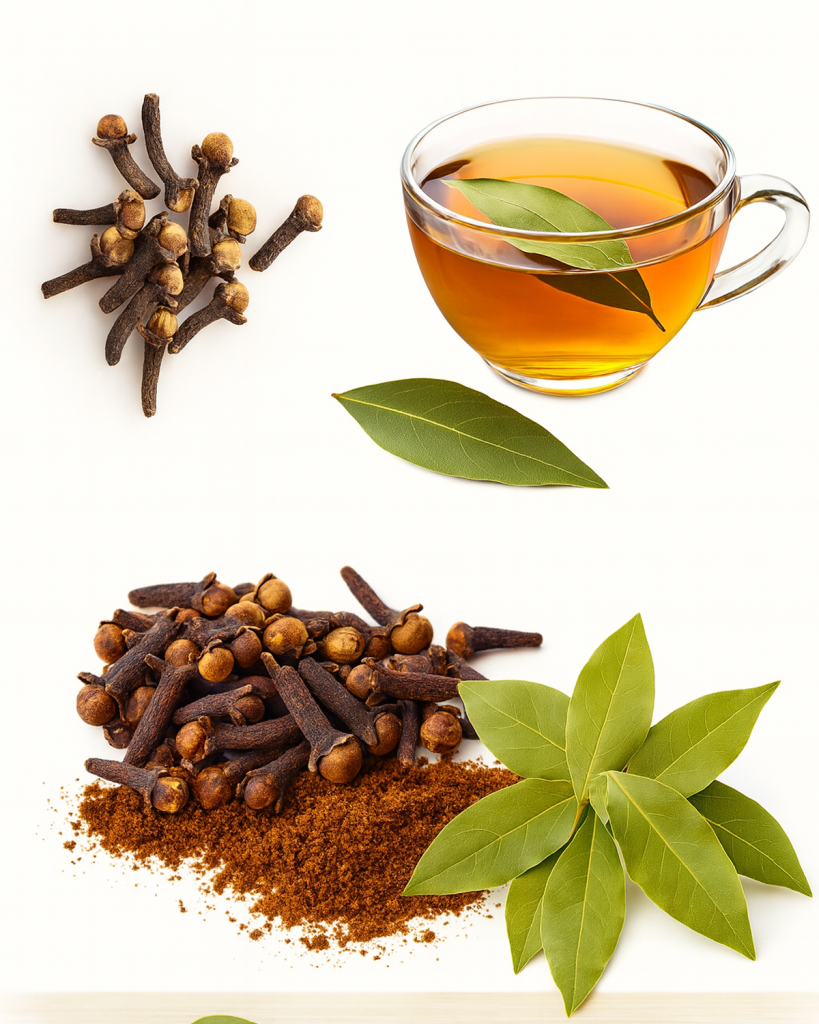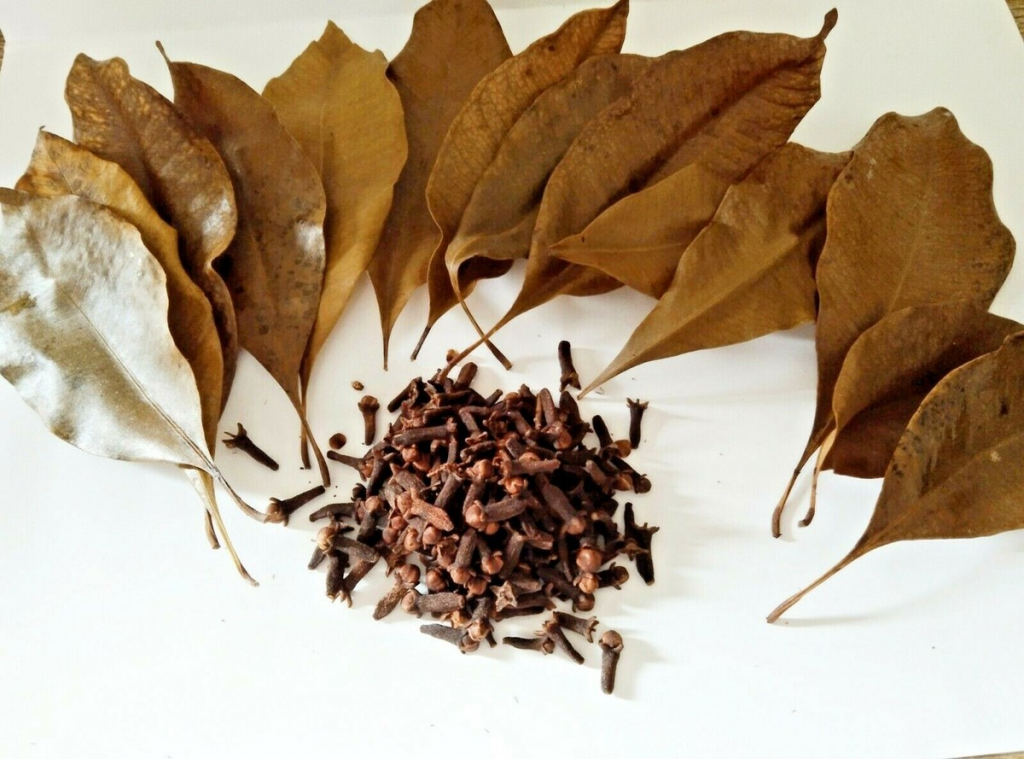Did you know that more than 60% of adults in the United States regularly turn to herbal teas as part of their wellness routine? According to recent surveys, the popularity of natural remedies has soared, as people search for gentler, home-based ways to support their health. Among these age-old traditions, bay leaf and clove tea has captured attention for its unique blend of flavor and wellness potential.
On our fanpage, we often receive questions like: “Can simple herbs really make a difference?” This article dives into that question. For centuries, both bay leaves and cloves have been treasured in kitchens and traditional medicine alike. When brewed together, they create a warming, aromatic tea that some believe can bring remarkable benefits to digestion, immunity, and daily energy.
In the following sections, we’ll uncover what makes bay leaf and clove tea so special, how it is prepared, the potential health-supporting effects, and how to incorporate it into your lifestyle safely. By the end, you’ll know exactly why this tea has been celebrated in many cultures—and whether it deserves a place in your own routine.

The Power of Bay Leaves and Cloves
A Brief History of Bay Leaves
Bay leaves, from the Laurus nobilis tree, have long been a symbol of honor and wisdom in ancient Greece and Rome. Beyond their culinary use in soups and stews, bay leaves were traditionally infused in hot water to soothe the body and mind.
A Brief History of Cloves
Cloves are dried flower buds from the Syzygium aromaticum tree, native to Indonesia. Known for their warm, slightly sweet flavor, cloves were among the most prized spices in the global trade routes centuries ago. They were not only used in cooking but also in folk remedies for digestion and oral health.
Nutrients Found in Both Herbs
| Herb | Key Compounds | Potential Role |
|---|---|---|
| Bay Leaf | Vitamin A, Vitamin C, polyphenols | Antioxidant and digestive support |
| Clove | Eugenol, manganese, vitamin K | Antimicrobial and anti-inflammatory properties |
This powerful pairing brings together antioxidants, natural oils, and compounds believed to support wellness in complementary ways.

Potential Benefits of Bay Leaf and Clove Tea
1. Supports Digestive Comfort
For generations, both bay leaves and cloves have been brewed to ease bloating, mild cramping, or discomfort after heavy meals. Their natural oils may help stimulate digestive enzymes, which in turn support smoother digestion.
Tip: Drink a warm cup after lunch or dinner to test how it feels for you.
2. May Help Freshen Breath
Cloves have been a natural remedy for oral care for centuries. Thanks to their antimicrobial properties, they are believed to help reduce bacteria in the mouth and provide fresher breath. Combined with bay leaves, the tea has a pleasant aroma that feels naturally refreshing.
3. Offers Antioxidant Support
Both bay leaves and cloves contain antioxidants that may help neutralize free radicals in the body. While antioxidants are not a cure, they support overall wellness and may play a role in healthy aging.

4. Promotes Relaxation
Bay leaf tea has been traditionally enjoyed in the evening to calm the nerves. When combined with the warming effect of clove, the blend becomes a soothing ritual that may help you unwind after a long day.
5. May Provide Immune Support
Cloves are rich in compounds studied for their antimicrobial activity, while bay leaves contain vitamin C and other plant compounds. Together, they may provide supportive benefits for the immune system, particularly during seasonal changes.
6. Can Support Healthy Blood Circulation
Some traditions suggest that the natural oils in cloves may help support circulation. Improved circulation is essential for delivering oxygen and nutrients throughout the body.
7. A Natural Alternative to Sugary Drinks
Replacing soda or overly sweetened beverages with herbal tea is an easy step toward better wellness. Bay leaf and clove tea is naturally calorie-free and flavorful without added sugar.

How to Make Bay Leaf and Clove Tea at Home
Making this tea is simple, and you can adjust it to suit your taste.
Ingredients:
- 3–4 dried bay leaves
- 3–4 whole cloves
- 2 cups of water
- Optional: a small piece of cinnamon stick, a teaspoon of honey, or a slice of lemon
Instructions:
- Bring 2 cups of water to a gentle boil.
- Add bay leaves and cloves (and cinnamon if desired).
- Let simmer for 8–10 minutes.
- Strain the liquid into a cup.
- Sweeten with honey or add lemon for extra flavor if you like.
Serving suggestion: Enjoy this tea warm, once or twice daily.

Practical Ways to Add It to Your Routine
- Morning ritual: Start your day with a cup to feel refreshed.
- After meals: Drink it warm to support digestion.
- Evening relaxation: Replace late-night coffee with this calming tea.
- As a cold brew: Let the tea cool, then refrigerate for a refreshing alternative to iced tea.
Safety and Precautions
Although bay leaf and clove tea can be a wonderful addition to your wellness plan, it’s important to enjoy it responsibly.
- Do not consume in very large amounts, as cloves are potent.
- Pregnant or breastfeeding women should consult a doctor before use.
- People with medical conditions or those on medications should check with a healthcare provider.
- Always treat herbal teas as a complement to, not a replacement for, professional medical care.
A 7-Day Experience Plan
Want to test the benefits for yourself? Try this simple 7-day experiment:
Day 1: Brew a small cup in the morning and note how you feel.
Day 2: Drink it after lunch; watch for digestive comfort.
Day 3: Try it in the evening as a relaxation ritual.
Day 4: Add lemon for a refreshing twist.
Day 5: Pair it with a balanced dinner instead of soda.
Day 6: Keep a journal of any noticeable changes in energy or digestion.
Day 7: Reflect on whether you’d like to make it a long-term habit.
This approach allows you to explore the tea’s effects without overwhelming your routine.

Common Myths About Bay Leaf and Clove Tea
“It works like a miracle overnight.”
Not true. Benefits may come gradually and vary by individual.
“It replaces medicine.”
No herbal tea should replace medical treatment prescribed by a doctor.
“The more you drink, the better the results.”
Excessive amounts may cause discomfort. Moderation is key.
Conclusion
Bay leaf and clove tea is more than just a flavorful drink. It carries centuries of tradition and a wealth of nutrients that may support digestion, relaxation, circulation, and overall wellness. By adding it to your daily routine in moderation, you may discover subtle yet meaningful changes in how you feel.
If you’ve been searching for a natural, simple, and affordable way to refresh your daily habits, this tea might just become your new favorite ritual.
FAQ
Q1: Can I drink bay leaf and clove tea every day?
Yes, moderate daily consumption is generally considered safe for most people.
Q2: Is it safe during pregnancy?
Pregnant or breastfeeding women should consult a healthcare provider before use.
Q3: Can I add other spices to this tea?
Absolutely. Cinnamon, ginger, or lemon can enhance both flavor and benefits.
Q4: Does it really work for weight loss?
It may support digestion and reduce sugary drink intake, but it is not a weight-loss cure.
Q5: How long does it take to notice results?
Some people feel benefits like relaxation or digestive comfort within a week, while others may need longer.
*Disclaimer: This article is for informational purposes only and does not provide medical advice. Always consult with a qualified healthcare professional before making changes to your diet or wellness routine.




